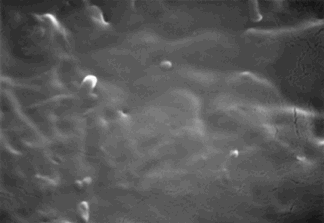Cleanliness
& Sterilization
Our office uses the most advanced methods of sterilization and disinfection
available for your safety and protection of your health.
Dr. Fox has been
a pioneer in this area of dental practice for over 35 years. This office
meets or exceeds, all guidelines of professional organizations and government
regulations. Some of the techniques routinely used include:
 |
Extensive use of
disposable supplies, used once and discarded. |
 |
Meticulous cleaning of all
instruments prior to sterilization, usually in an ultrasonic machine,
followed by inspection and additional cleansing of each instrument
by hand prior to sterilization. |
 |
Sterilization of
all instruments, including dental hand pieces ("drills") in
computer monitored autoclaves or dry heat sterilizers. These
special instruments are only lubricated before sterilization, to further protect
patients. Our high-tech dental hand pieces are quieter than any other on the market. |
 |
Routine maintenance of all
instruments and equipment as recommended by manufacturers. We
literally close the office to patient care for four hours each week to
complete a checklist of maintenance, repair, cleaning, and additional
sterilization of our entire office. We also close for a full day each
quarter to complete additional maintenance, repair, cleaning and related tasks
to ensure our safety measures and patient care are state of the art. |
 |
Sterilization of non-disposable
plastic instruments by immersion in hospital grade sterilizing fluid for 15
hours. (exceeding the methods used in hospitals for surgical instruments and
laproscopes). |
 |
Municipal
water supplies are not adequately free of microscopic germs to meet our
standards for protecting patient health. Our dental units are not
connected to municipal water lines. Our dental units were, in fact, never
connected to municipal water lines to prevent contamination of the inside of the
water lines used for patient treatment. We only use sterilized, distilled
water in all of our dental units.
 |
Our
office utilizes and maintains the best current technology to manage water
quality and will continue to update our equipment and protocol as new
information becomes available. We are committed to the safety and
well-being of our patients. As new products become available and new research
provides us with better ways to practice oral healthcare, we will continue to
improve the quality of care in this office. |
|
 |
Routine
disinfection of the inside
of all waterlines in our dental equipment, followed by overnight drying.
The water tubing in our dental units meets the same standards as those used
in kidney dialysis machines. The pictures below demonstrate the
difference between dental equipment waterlines that were not disinfected (left)
and which were properly disinfected with the methods used in our office: |
|

This is a picture of the inside of a small
plastic pipe that was carrying water in dental chair in another dental office. The picture was
taken by a scanning electron microscope. Clumps of bacteria cover the walls of the
water line tubing. These germs can break away and enter the dentist's
water syringe or dental hand piece. The result is a risk of respiratory or
systemic infections or disease, particularly for the elderly, infirm, or those
with medical conditions which lower resistance to infection (chronic
illnesses, leukemia, cancers, chemotherapy, respiratory problems, and many other
conditions).
Biofilm is a thin layer of microorganism that
accumulates in common devices used to transport water, such as municipal water
pipes, commercial and residential water piping, shower heads,
faucets, soda fountains and others. Small diameter piping or tubing (such
as those found in dental office chairs and equipment) is particularly prone to
bacterial growth. The tubing surface examined in picture above was not properly disinfected. |

The above picture (taken by the same scanning electron
microscope at the same magnification as the picture on the left) shows a similar
plastic pipe which has been properly disinfected. The walls of the dental unit water line are free
of bacterial clumps.
Our
office uses the methods of water line disinfection that research studies prove
to be effective, and safe for patients.
We
test our water lines regularly to ensure that the disinfection methods we're
using are working properly. |
 |
Periodic
Monitoring and testing of sterilization and disinfection systems is part of
our office routine. This includes bacterial culturing our dental unit
waterlines, microbial spore testing of sterilizing equipment, constant
monitoring of sterilization temperatures and times, replacing disinfecting
solutions on a strict schedule to preserve potency, and use of thermal
indicators to verify proper sterilization equipment operation. |
 |
A routine of
rigorous cleaning
and disinfection of all surfaces in the treatment room between every
patient, followed by use of sterile drapes, towels, or plastic film
over all equipment we touch during treatment. |
 |
Use of
surgical gloves and
aseptic technique in all patient care. |
 |
Sterilization
of all dental appliances, restorations, and impressions that enter and
leave our on site dental laboratory. These steps are important in preventing
disease transmission when laboratory procedures are used. |
 |
For
certain specialized surgical procedures our routine unusually thorough cleaning,
disinfection and sterilization protocols are upgraded to match those of a
hospital operating room. |
 |
Use of
an antiseptic (but pleasant tasting) prescription oral rinse before treatment visits to reduce germs in the treatment
rooms and in each patient's mouth. |
|